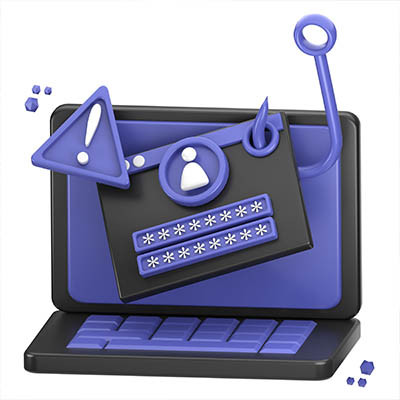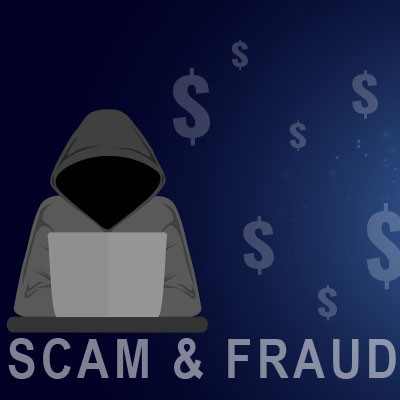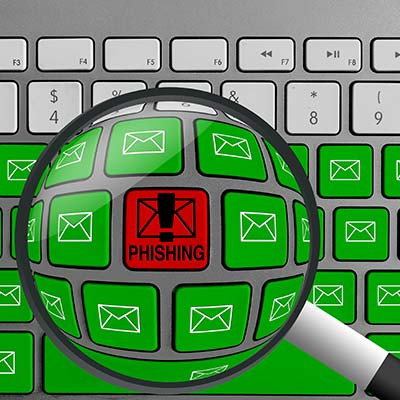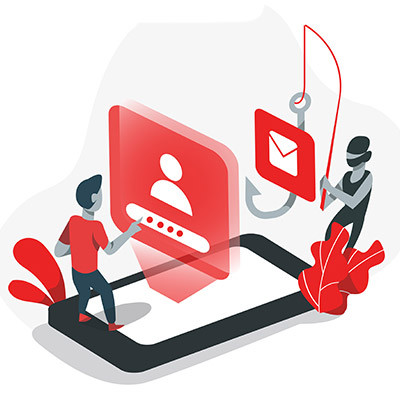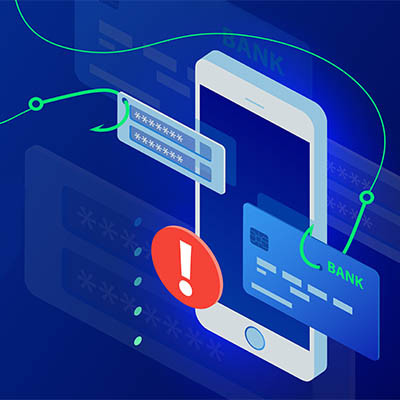Potential data breaches pose a growing threat to organizations, with phishing attacks being the most prevalent method hackers use to steal sensitive information. It has become one of the most widespread online dangers, and understanding how it works is crucial to protecting your users. Let's go into what phishing attacks are and explore some best practices to safeguard your network.
Indevtech Blog
We talk a lot about phishing on this blog, and for good reason. It makes up a significant portion of today’s cyberthreats, irrespective of size or industry. Today, we want to highlight how your business can protect itself from phishing attacks and keep their impacts to a minimum. We’ll dive into some details about phishing schemes and the solutions you can implement to keep your business safe.
It seems like with every day that passes, there is a new sinister cyberthreat to worry about, and it’s crucial that businesses learn as much as possible about how to keep themselves safe as they can. There is simply too much at stake not to. That said, there are broad categories that most threats will fall under. Today, we’re going to explore them.
In this blog, we continuously try to caution individuals against clicking on suspicious links, but distinguishing between a genuine URL and a questionable one has become increasingly challenging. Malicious tactics have evolved, making it imperative for everyone to remain vigilant. These threats are pervasive, coming from various directions. This discussion will focus on a single punctuation mark that can help determine whether a link is genuinely safe or potentially perilous.
Small businesses, like any other entities, can be vulnerable to various computer scams. Scams can have an unsettling effect on how your business runs, as it always keeps doubt—even if you do everything you can to mitigate risks—to whether you are going to be the victim of a horrible Internet-based scam. Here's a list of common computer scams that small businesses should be aware of.
Email is complex, despite all appearances. It’s easy to overlook its complexities when you log into your account and it just works. However, you’ll need to ensure that your email is managed properly, as well as secured with protective measures for the underlying technology. Let’s go over some of the more effective methods you can use to keep your infrastructure secure from all types of threats, whether they are visible or hidden.
It’s borderline impossible to conduct any business online without seeing potential threats abound. It also doesn’t help that threats tend to disguise themselves to avoid being detected. Today, we want to share a social media threat that one of our employees discovered while going about their day, and we think even a cautious user could have been fooled by it.
Viruses and malware are bad. Ransomware is crippling. Data breaches in some cases can more or less shut down a business. We talk about these threats all the time, but for most people, they are just scary-sounding buzzwords. Today, we want to talk about the more personalized threats that are much more cunning, and in some ways, much more dangerous.
Phishing is the most widespread attack vector for modern day hackers. They are continuously evolving, getting more and more sophisticated, and therefore more dangerous. In this month’s newsletter, we are going to go through what makes a phishing attack and how to give your organization the best chance at keeping them from being a major problem for your business.
As time goes on, businesses are doing more and more to protect their digital assets from theft and corruption. Whether that is deploying tools, providing training, or getting the support you need to successfully secure your business from the myriad of threats coming your way, you need to be deliberate about the way you go about deploying your security resources. Today, we want to touch on security training and the role it plays in your cybersecurity.
Phishing attacks are one of the most common security threats to your business, not only because they are effective, but because they can be utilized in many different ways. You can become the victim of a phishing attack through email, instant message, phone, or even your voicemail. These “phoicemail” attacks are quite crafty in their approach, and you should be wary of them.
Business owners often get unsolicited emails from individuals who want to sell them goods, services, or products. Depending on the message, they might even come across as a bit suspicious, prompting you to question the authenticity of the email. If you’re not careful, you might accidentally expose your organization by clicking on the wrong link in the wrong email, thus falling victim to the oldest trick in the book: the phishing attack.
Social engineering is a dangerous threat that could derail even the most prepared business. Even if you implement the best security solutions on the market, they mean nothing if a cybercriminal tricks you into acting impulsively. Let’s go over specific methods of social engineering that hackers might use to trick you.
How often do you check social media only to find your news feed clogged with your friends and family sharing the results of quizzes like, “Which Star Wars character are you,” or “What’s your superhero name based on your birthday.” While these quizzes might seem harmless on the surface, they often hide a far more sinister agenda, one which uses the personally identifiable information provided to them for nefarious purposes.
For twenty years, hackers have tried to breach organizational networks by finding or breaking holes in the network’s perimeter, or in exposed servers. This led to the cybersecurity industry creating software designed specifically to stop these threat actors in the act. This, in essence, created a situation where the perimeter of an organization’s network was extremely hard to breach. The problem was that as soon as something was able to get through the outer defenses, there was no end to the devastation a hacker could cause inside a network.
Network security isn’t just for large, high-profile enterprises; even small businesses need to take it seriously. All businesses have something of value to hackers, and if you don’t believe this is the case for your organization, think again. All data is valuable to hackers, and you need to do everything in your power to protect it—especially against threats like Agent Tesla, the latest version of phishing malware designed to steal your data.

